New Scientist covers the latest developments in science and technology that will impact your world. New Scientist employs and commissions the best writers in their fields from all over the world. Our editorial team provide cutting-edge news, award-winning features and reports, written in concise and clear language that puts discoveries and advances in the context of everyday life today and in the future.
Elsewhere on New Scientist
Difficult conversations • It is time to talk about therapy and whether it really works
New Scientist
Suiting up for the trip of a lifetime
Large-scale quantum effects • A crystal containing quadrillions of atoms has been put in a quantum superposition
Keto diet may treat epilepsy by changing gut microbiome
Ancient droppings may help save endangered kakapo
Warm sea will worsen storms • Record-breaking sea surface temperatures are predicted to bring fiercer hurricanes and typhoons this year, reports Madeleine Cuff
Can conspiracy theories be stopped? • A review finds there are no viable ways to counter unfounded beliefs in secret plots
Male crazy ants have two different sets of DNA in their bodies
Aliens could get a nasty surprise when their planet flips
Neural engineering rewires the brain using light
Analysis Vaccination • Should more countries vaccinate against chickenpox? The UK, Denmark and France don’t offer the jab, but research suggests it could save lives across all ages, says Clare Wilson
Ultraviolet camouflage could help bird hunters
Your short-term memory can become unreliable in a matter of seconds
Solar flares made in the lab help explore the real thing
Chimpanzees may have an adolescent growth spurt
AIs that can’t draw hands to get help from one that can
Double-slit experiment with a twist • A classic demonstration involving gaps in space has now been performed with gaps in time
Extremely primitive spider species identified in China
Plant-spotting apps often fail to identify correct species
Monkeys with human-like hands fooled by magic
Animals that don’t follow the herd seem to be better at solving problems
Swaying plastic ‘reefs’ could calm rough seas
Ozone-destroying CFCs are on the rise again despite ban
Did African elephants tame themselves?
Ancient shark could smell in stereo
Shapes 3D printed into living worms
Viral diseases in plants fuelled by climate change
Really brief
Red in tooth and claw • It is hard to be honest with children about how nature really works, but we need to acknowledge the suffering of wild things, says Richard Smyth
This changes everything • Finding a new home online Plenty of people disagree on Mastodon, but unlike on Twitter, I have experienced no cruel reprisals. Could this be a social media platform to trust, asks Annalee Newitz
Greening Italy
Your letters
Marvellously multilingual • From staving off the symptoms of dementia to thinking better, speaking many languages is all upside, finds Vijaysree Venkatraman
A waiting game • Why do new traits in evolution and human culture often stay dormant? Michael Marshall finds some intriguing answers
Don’t miss
The film column • Back from the future In England, the second world war looms and two young women let intelligence services use a machine they created that intercepts future broadcasts. Simon Ings relishes a counterfactual that needed a bigger budget
Therapy in the spotlight • It is more available than ever before, but how do we know psychotherapy works and which kind is best for you? Sam Ephron investigates
How to choose a therapy
Beyond imagination • Physicist David...

 Jul 27 2024
Jul 27 2024
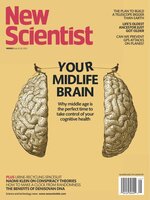 Jul 20 2024
Jul 20 2024
 Jul 13 2024
Jul 13 2024
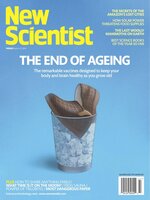 Jul 06 2024
Jul 06 2024
 Jun 29 2024
Jun 29 2024
 Jun 22 2024
Jun 22 2024
 Jun 15 2024
Jun 15 2024
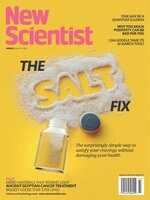 Jun 08 2024
Jun 08 2024
 Jun 01 2024
Jun 01 2024
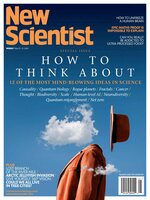 May 25 2024
May 25 2024
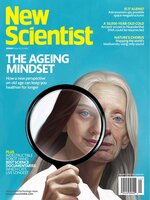 May 18 2024
May 18 2024
 May 11 2024
May 11 2024
 May 04 2024
May 04 2024
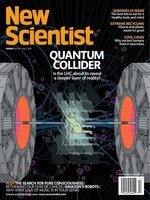 Apr 27 2024
Apr 27 2024
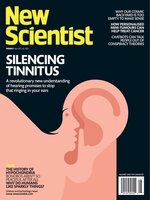 Apr 20 2024
Apr 20 2024
 Apr 13 2024
Apr 13 2024
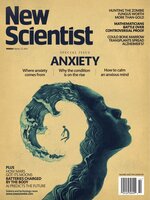 Apr 06 2024
Apr 06 2024
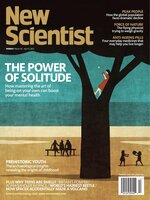 Mar 30 2024
Mar 30 2024
 Mar 23 2024
Mar 23 2024
 Mar 16 2024
Mar 16 2024
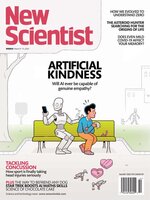 Mar 09 2024
Mar 09 2024
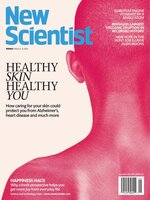 Mar 02 2024
Mar 02 2024
 Feb 24 2024
Feb 24 2024
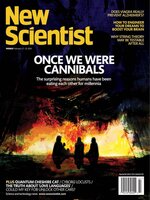 Feb 17 2024
Feb 17 2024
